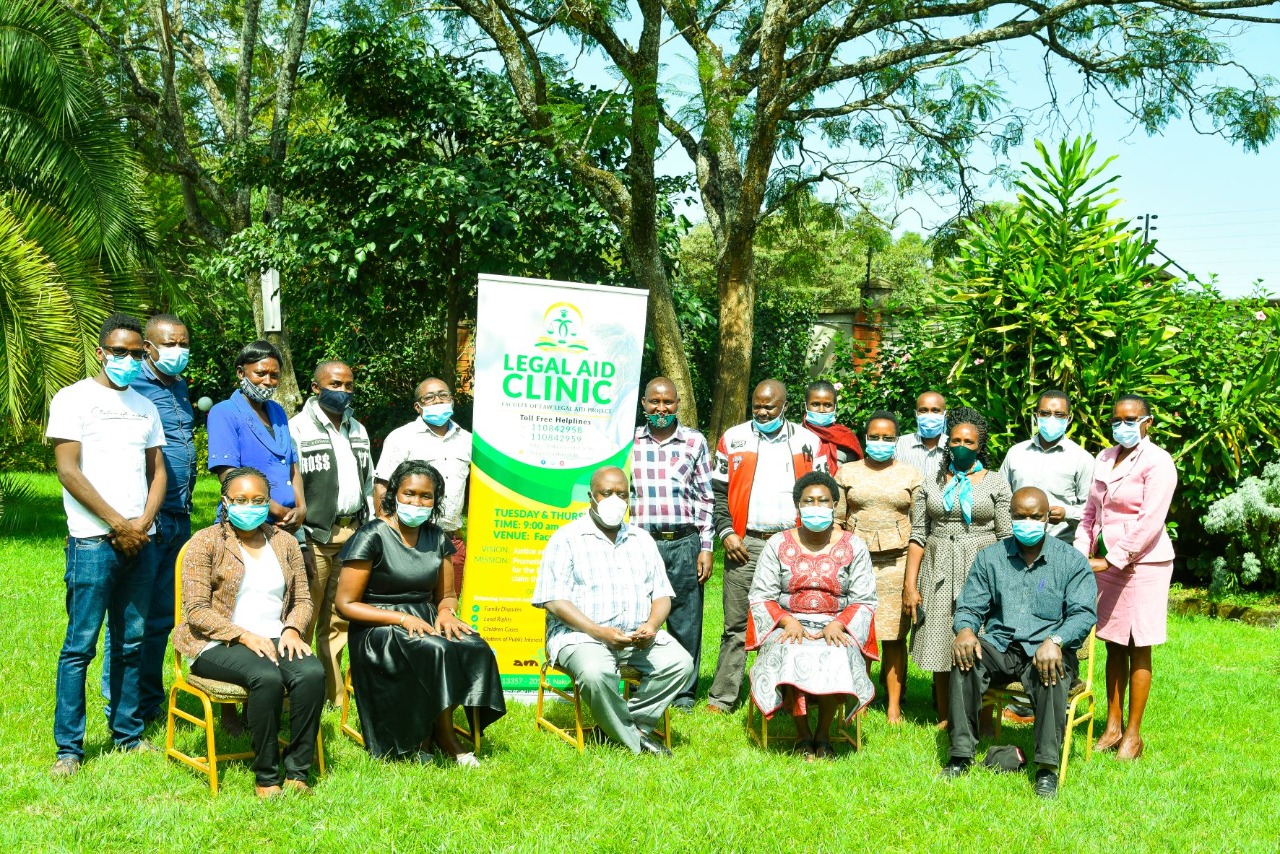The Faculty of Law Legal Aid Project (FOLLAP) will join the Judiciary and other stakeholders on Monday 16 May in the launch of the Nakuru County Action Plan (CAP) on Alternative Justice Systems (AJS).
The launch will take place at the Nakuru Law Courts and will be presided over by the Chief Justice Martha Koome and will see the unveiling of an AJS suit as well as the Small Claims Court.
 A group photo of participants at a mediation training sponsored by FOLLAP in 2020. FOLLAP has been capacity building community members on the use of AJS in Nakuru county.
A group photo of participants at a mediation training sponsored by FOLLAP in 2020. FOLLAP has been capacity building community members on the use of AJS in Nakuru county.
FOLLAP has been an active partner in the development of the action plan and has been capacity building community members on AJS as a tool of accessing justice.
In 2020, for instance, it partnered with the Mediation Training Institute (MTI) in training selected community leaders in Nakuru county on mediation. Among those who benefited are Chiefs and Assistant Chiefs.
AJS is provided for in Article 159-2-C of the Constitution and are aimed at facilitating efficient access to justice in other forms other than the use of formal courts.